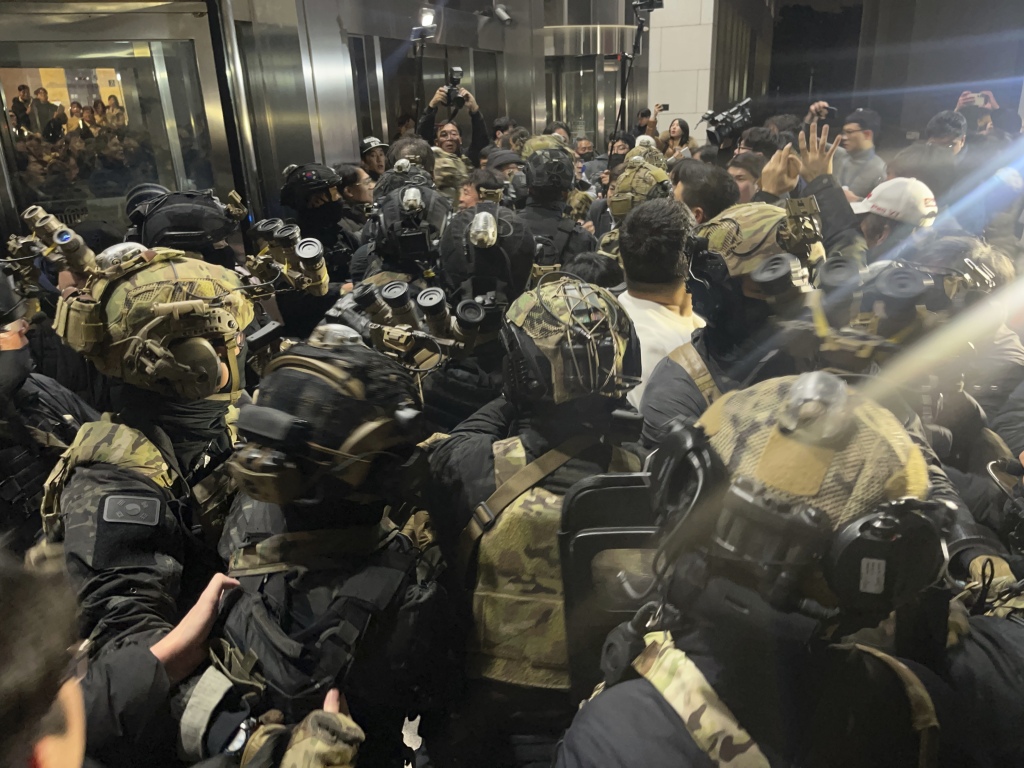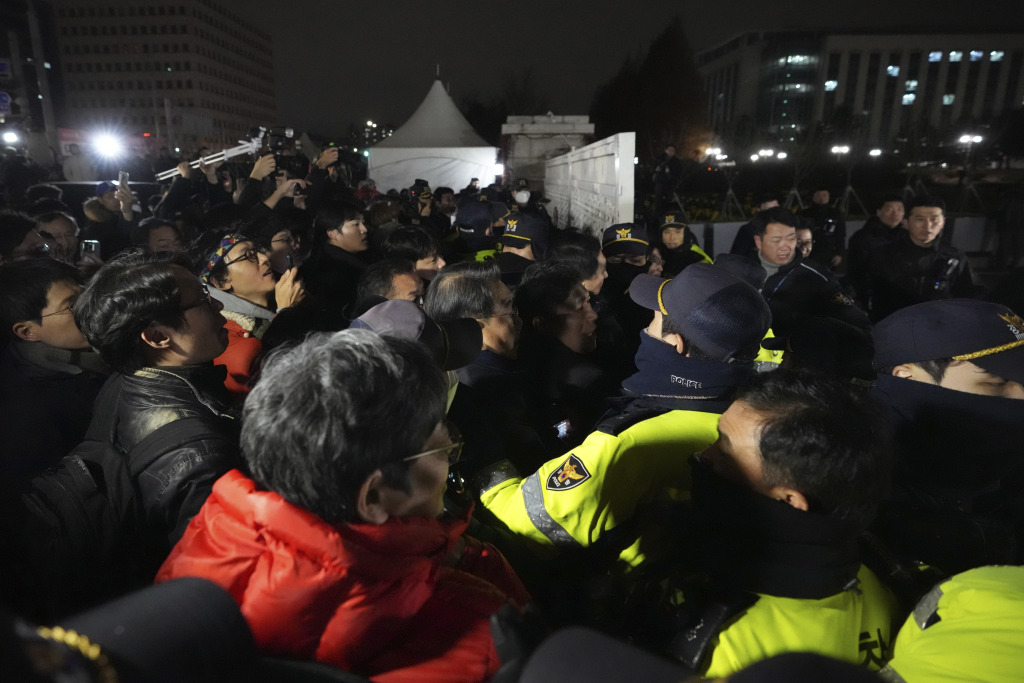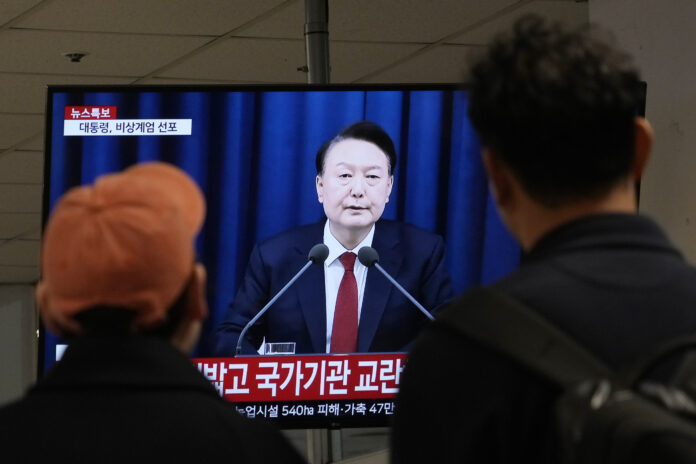South Korean President Yoon Suk Yeol announced early Wednesday that he would soon lift the martial law imposed during a dramatic night of political unrest, where military forces surrounded the National Assembly and lawmakers voted to reject his declaration of emergency rule.
Yoon stated that troops deployed during the crisis had been withdrawn and that the formal revocation of martial law would follow a Cabinet meeting. “As soon as members arrive, we will proceed,” he said.

A Controversial Declaration
Late Tuesday, Yoon imposed martial law, citing threats from “anti-state” forces and accusing the opposition-controlled parliament of aligning with communist North Korea. The declaration marked the first imposition of martial law in South Korea since the country’s democratization in 1987, evoking memories of its authoritarian past.
Yoon claimed the measure was necessary to “eradicate pro-North Korean forces” and “protect the constitutional democratic order,” urging citizens to tolerate “some inconveniences” for the sake of national security.
Swift Rejection by Parliament
Just hours after the declaration, all 190 lawmakers present in the National Assembly voted to overturn it. National Assembly Speaker Woo Won Shik called the martial law “invalid” and vowed that lawmakers would “protect democracy with the people.”
Televised images showed helmeted soldiers and armed police withdrawing from the Assembly grounds following the vote. Hundreds of protesters gathered outside, waving banners and calling for Yoon’s impeachment. Some scuffles were reported, but there were no major injuries or property damage.
Political and Public Backlash

Opposition leader Lee Jae-myung, whose party holds a majority in parliament, called Yoon’s move “illegal and unconstitutional,” accusing him of betraying the nation. Lee and other lawmakers vowed to remain in the Assembly’s main hall until martial law was officially lifted.
Even Han Dong-hoon, leader of Yoon’s own conservative People Power Party, criticized the decision, calling it “wrong” and promising to “stop it with the people.”
International Concerns
The White House expressed “serious concern” over the situation, stating that the U.S. had not been notified in advance of Yoon’s declaration. U.S. Deputy Secretary of State Kurt Campbell underscored the importance of resolving political disputes “peacefully and in accordance with the rule of law,” while affirming the strength of the U.S.-South Korea alliance.
Democracy Under Pressure
Yoon’s presidency has faced mounting challenges, with his approval ratings plummeting and his policies repeatedly blocked by an opposition-controlled parliament. His critics accuse him of authoritarian tendencies, including suppressing dissent and targeting political opponents.
Natalia Slavney, a research analyst at the Stimson Center’s 38 North, described the martial law imposition as “a serious backslide of democracy in South Korea,” reflecting a broader trend of “abuse” since Yoon took office in 2022.
While the immediate crisis appears to have subsided, the political fallout—both domestically and internationally—remains uncertain. South Korea’s history of mass protests and political accountability could play a pivotal role in shaping the next steps for the embattled president.


